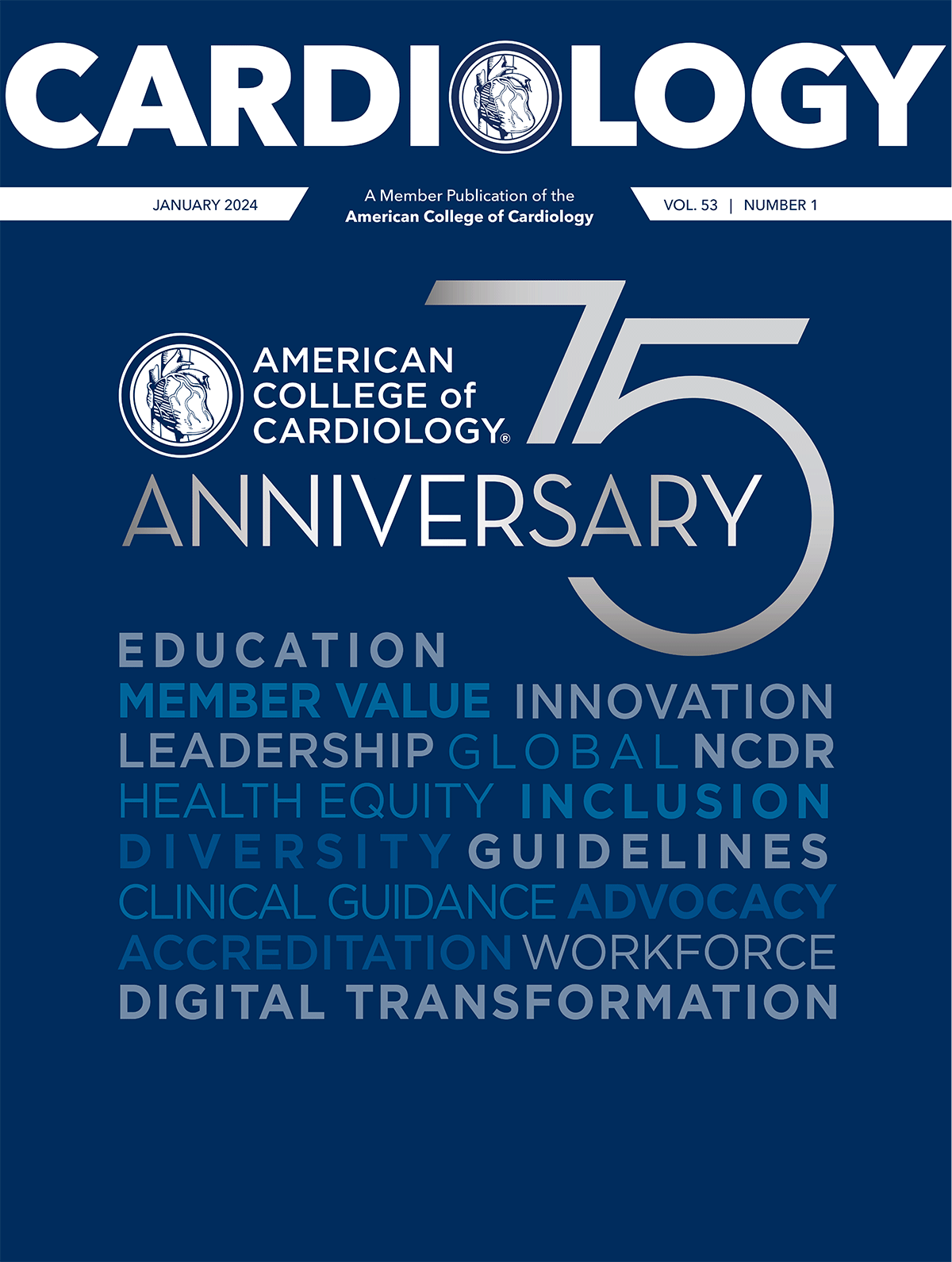Cover Story | ACC at 75: Transforming Care, Inspiring Innovation, Building Community
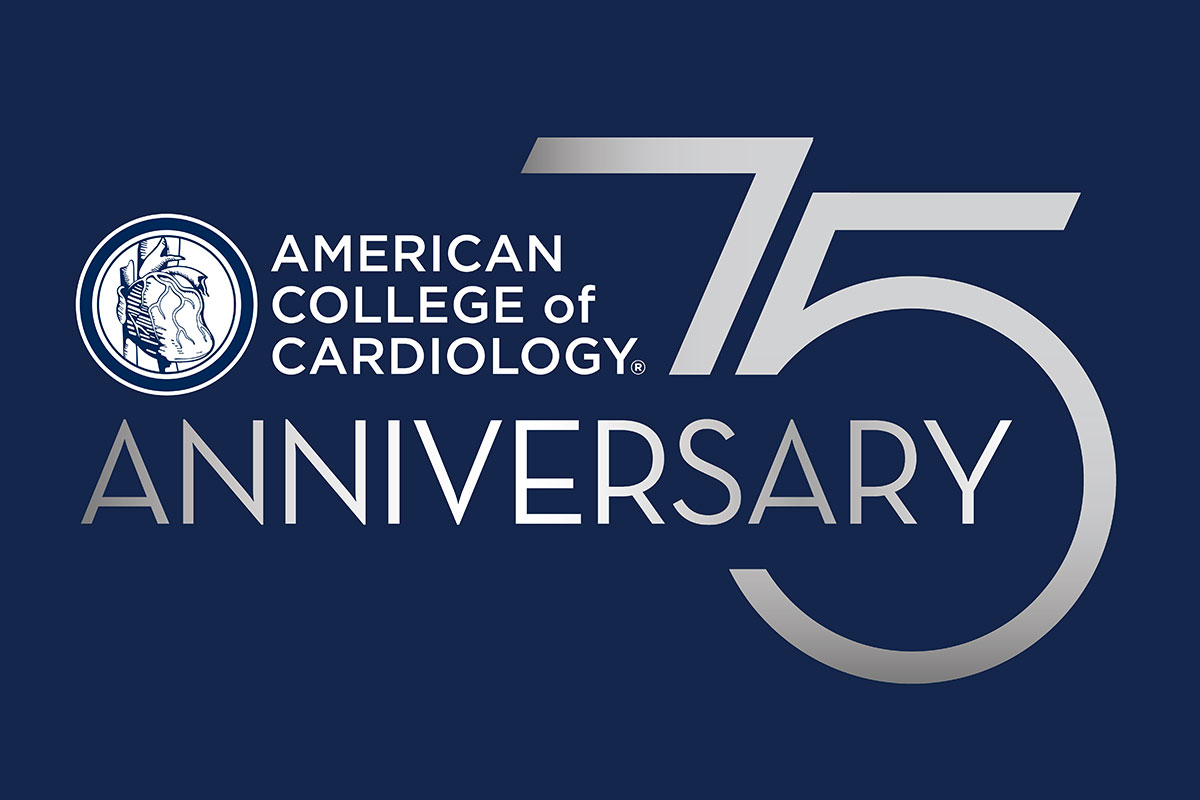
In 1949, 13 cardiologists led by Franz Groedel, MD, MACC, and Bruno Kisch, MD, MACC, founded the ACC, creating a professional home for cardiovascular clinicians seeking the latest science, research and cutting-edge education. Fast forward 75 years later and the College has evolved into a global cardiovascular leader, uniting more than 56,000 members spanning the entire cardiovascular care team around the shared Mission of transforming cardiovascular care and improving heart health for all.
The past 75 years are filled with examples of men and women whose vision, leadership and commitment to patient-centered care have helped address the challenges of the day and make real differences in the lives of people living with, or at risk of, heart disease. Their contributions to science, their quest for knowledge and their belief in the power of innovation have continued to optimize the care and outcomes of patients around the world, while also leaving an indelible impact on the College and its growth and evolution.
Among the major historical milestones:
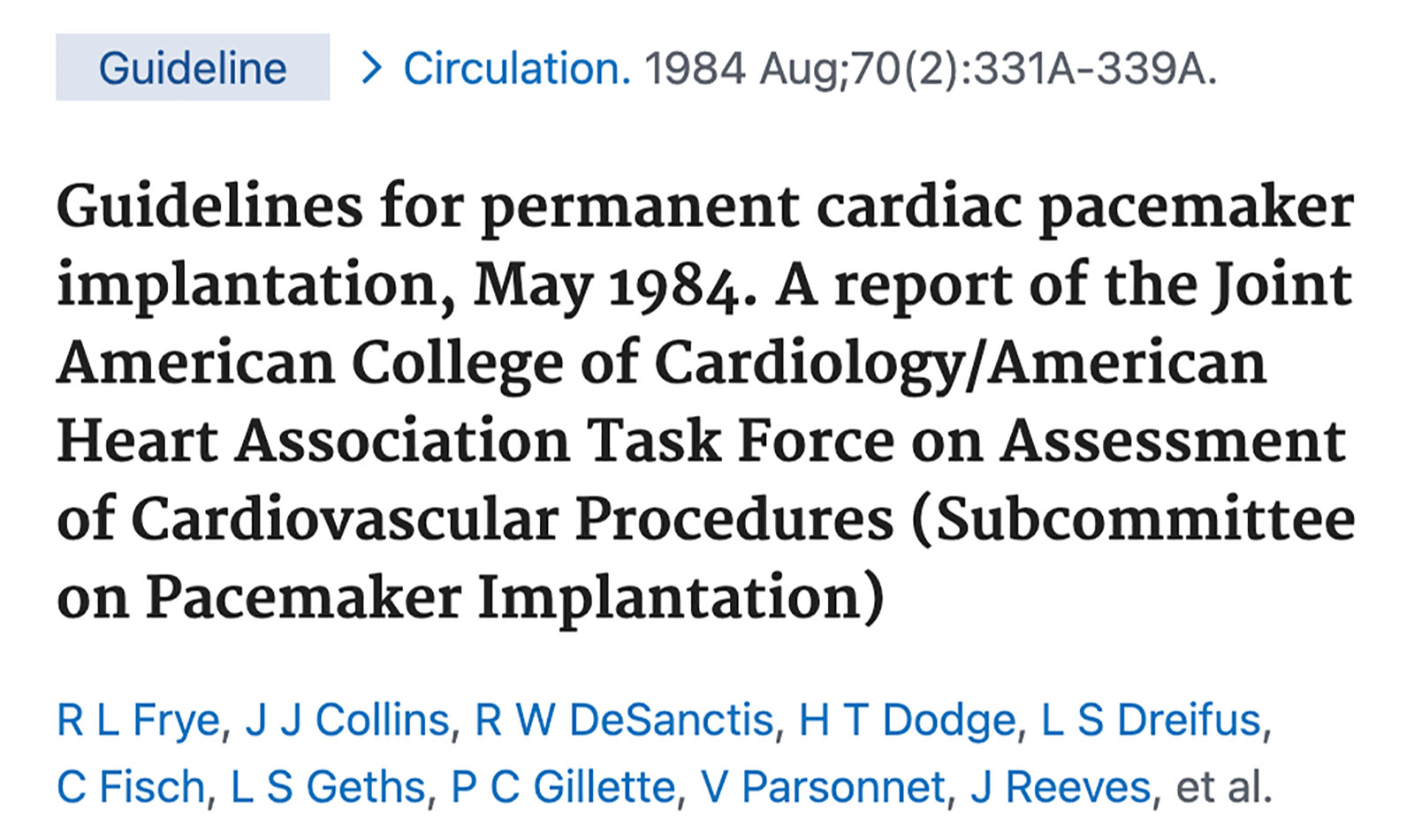
Forty years of clinical guidelines in partnership with the American Heart Association, starting with the first guideline on pacemaker implantation in 1984 to the most recent guideline on atrial fibrillation published in December 2023.
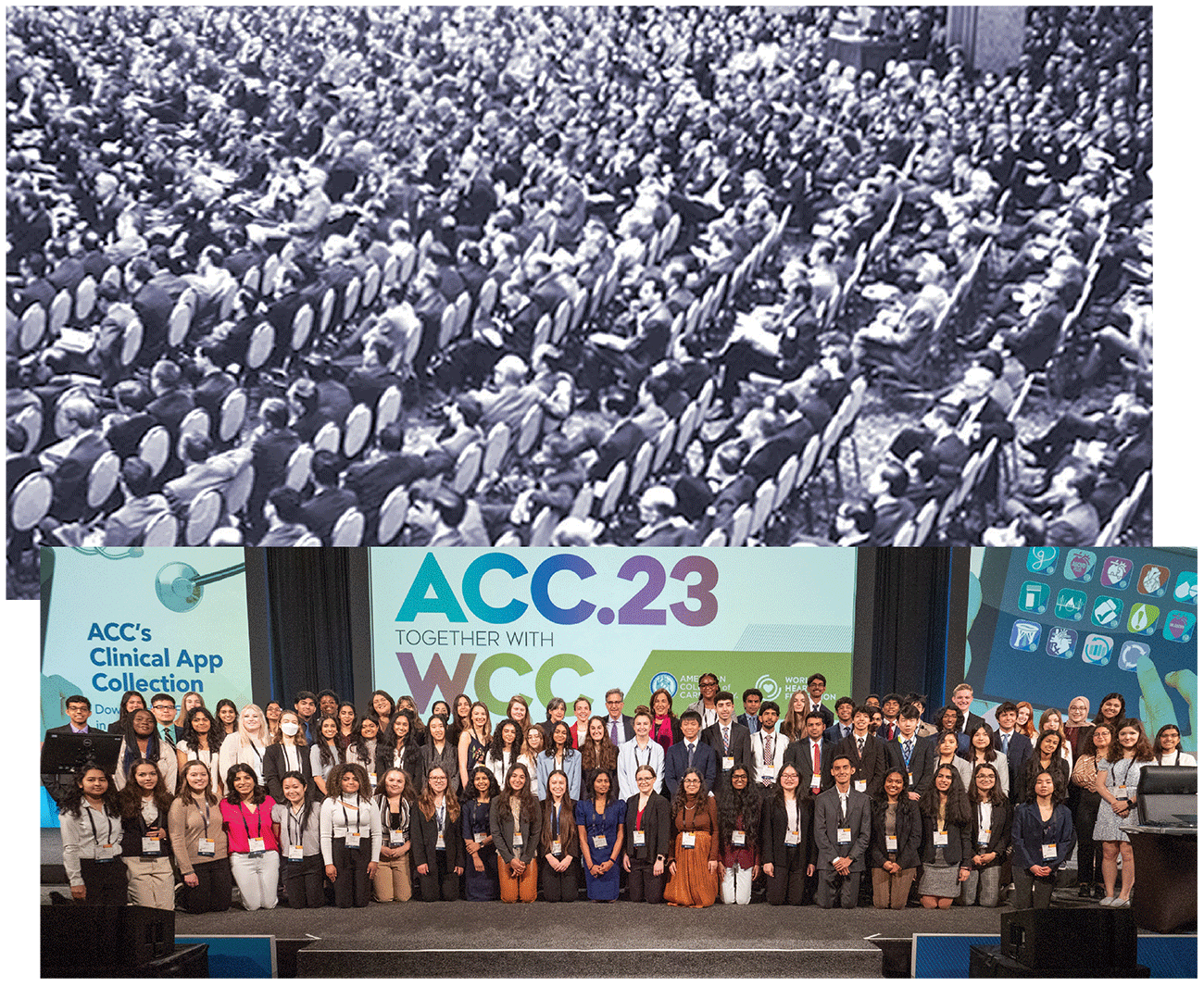
The debut of the College's first live education meeting in New York in 1957 and its subsequent evolution into the Annual Scientific Session, one of the leading cardiovascular scientific meetings in the world.

The ACC's Chapter system has evolved over the last many decades to include 48 State Chapters and 42 International Chapters, led by the Board of Governors and Assembly of International Governors, respectively.
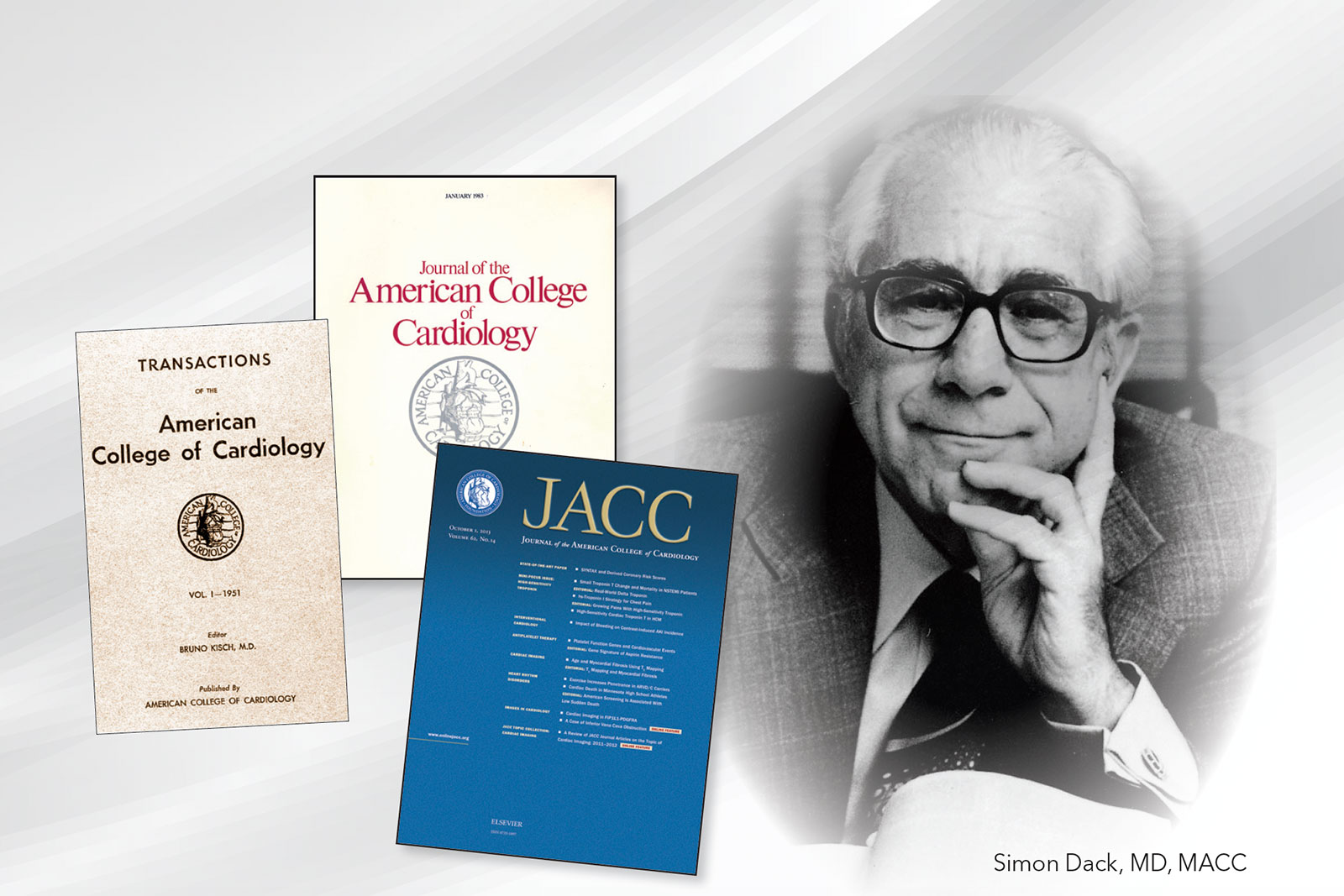
Six decades of disseminating the latest scientific information directly to members, starting with the American Journal of Cardiology in 1959 and evolving to the Journal of the American Cardiology (JACC) in 1983. Today, the JACC Journals family includes 10 world-renowned, peer-reviewed journals covering all aspects of the profession.

More than 25 years of the NCDR and Accreditation Services, growing from the CathPCI Registry in 1997 to a suite of registries and accreditation program that are helping over 2,000 hospitals and facilities harness the power of their data to provide the best, evidence-based care to their patients.

Continued growth and expansion of the College's global presence, starting with the first international circuit courses in 1961, to today's robust regional conferences in Asia, the Middle East and Latin America; focused train-the-trainer and quality improvement programs; and much more. More than 16,000 cardiovascular clinicians from over 140 countries now call the College home.
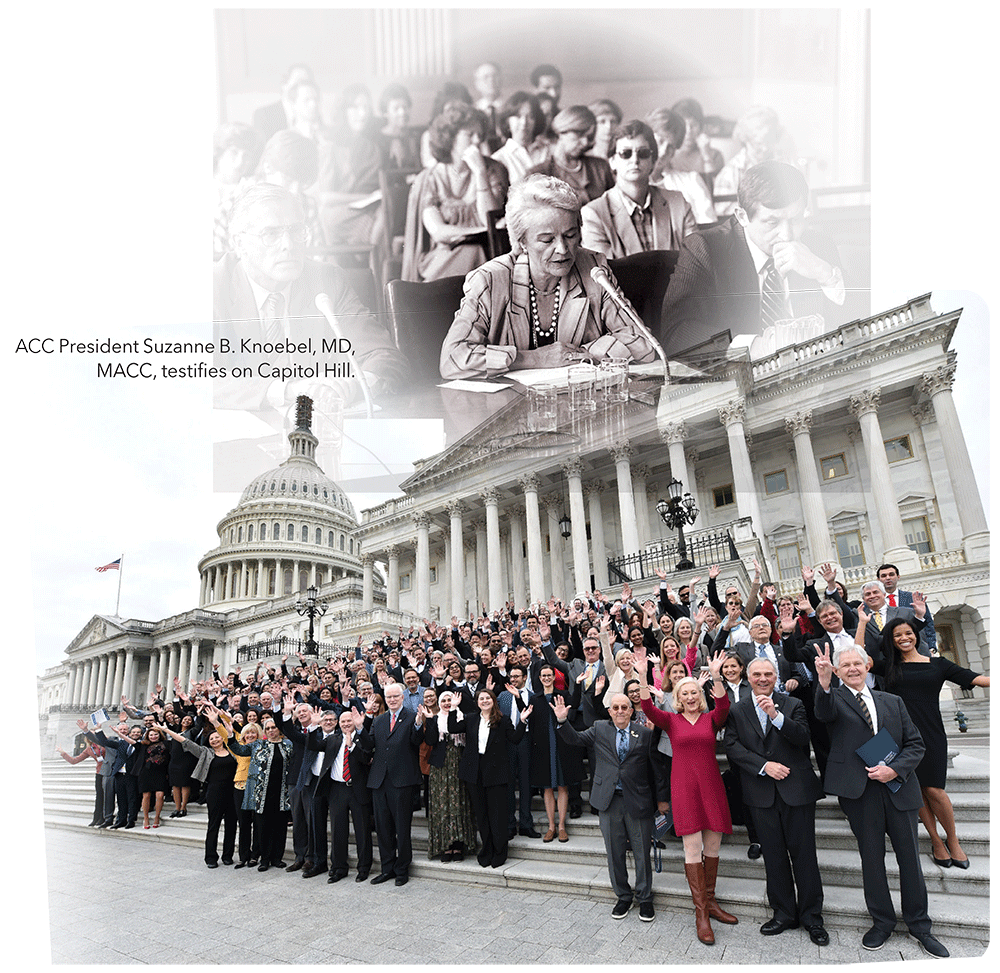 ACC President Suzanne B. Knoebel, MD, MACC, testifies on Capitol Hill.
ACC President Suzanne B. Knoebel, MD, MACC, testifies on Capitol Hill.
Nearly five decades of shaping health policies that improve patient access to care, beginning with a move from New York to Bethesda, MD, in 1977 to be closer to the National Institutes of Health and then to Washington, DC. Today, the ACC's Annual Legislative Conference and Political Action Committee (now the HeartPAC) continue to play important roles in furthering the College's policy priorities and strategic goals.

Roughly two decades of welcoming clinicians from across the cardiovascular care team as members of the ACC and growing the College's more than 20 Member Sections tied to clinical interests, career stages and roles within the CV Team.
A Decade of Transformation
In addition to the major historical milestones over the last many decades, the College has made a number of transformational changes in the last decade alone that have helped to proactively address the rapid growth of digital technologies, the continually evolving health care landscape, the growth and expansion of ACC membership, and the emergence of cardiology as a distinct specialty with its own set of subspecialties, clinical guidance and competencies.
Guided by two consecutive five-year Strategic Plans, the ACC has been focused on transforming care delivery, delivering actionable knowledge, maintaining organizational sustainability and being the professional home for its members.

On the professional home front, the College has worked diligently to enhance membership value and engagement among all its members, including international cardiovascular professionals, Fellows in Training, training directors, practice administrators and early career professionals. Key projects have focused on identifying new ways to diversify and cultivate new and emerging leaders and resulted in several new programs like the Sandra J. Lewis Mid-Career Women's Leadership Development Program, the ACC Leadership Academy, the Emerging Faculty Program, the Clinical Trial Research Program and more.
Determining the needs of the "Member of the Future" has also been a part of the College's "professional home" efforts, with initiatives like the Internal Medicine Cardiology Program, Young Scholars, Hani Najm Global Scholar Award, and the William A. Zoghbi International Research Award debuting over the last several years as means of growing and sustaining the membership pipeline.
Additionally, addressing clinician well-being; driving cultural change across the profession through diversity, equity and inclusion efforts; and solving for the workforce crisis have also been key components of the College's plan to be the home for the profession.
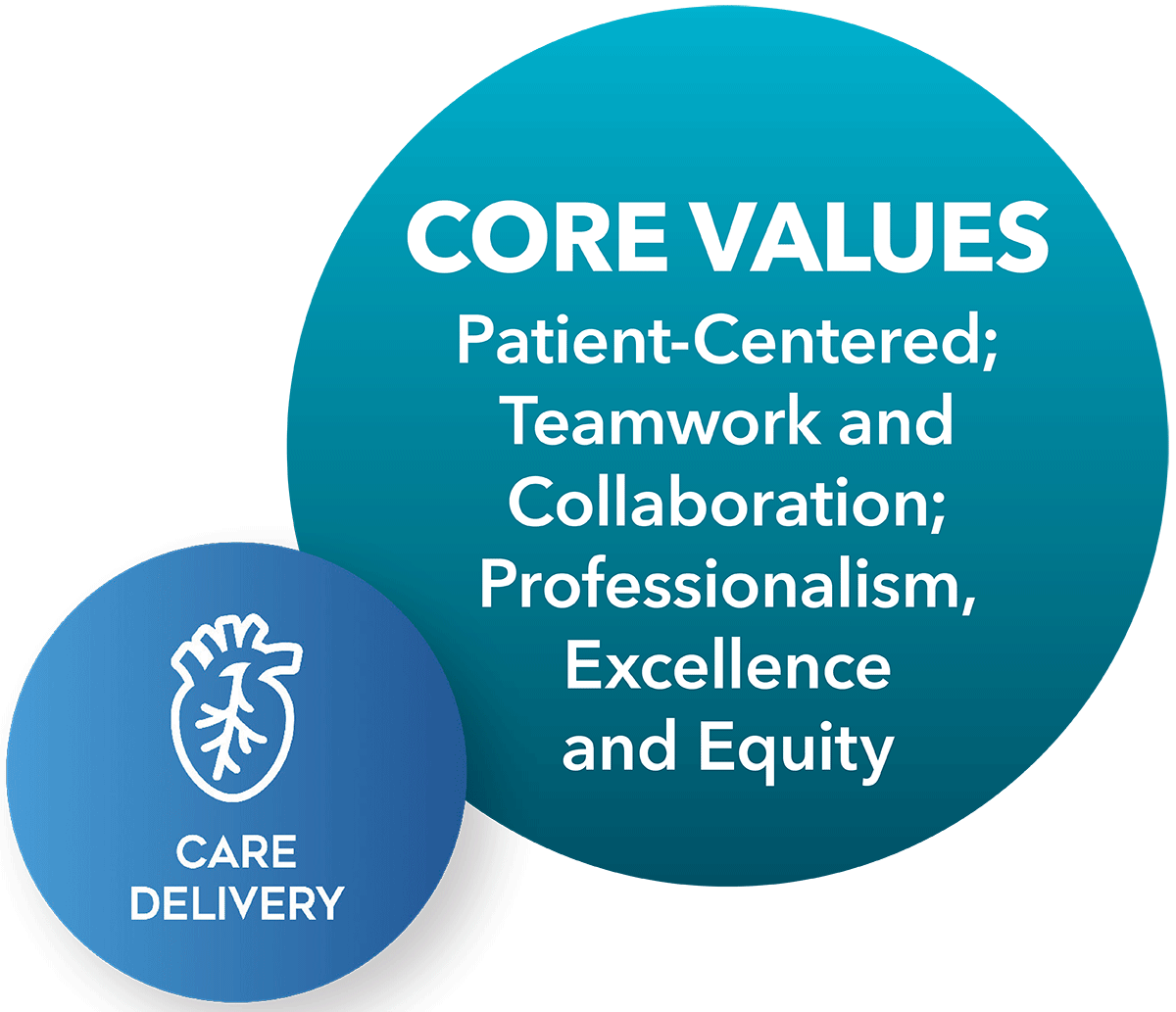
Care transformation and advancing quality, equity and value of cardiovascular care has been at the heart of ACC's strategic efforts over the last 10 years, particularly given the ongoing transition from volume- to value-based care.
In addition to the merger with the Society of Cardiovascular Patient Care to form ACC Accreditation Services in 2016, the College has spent the last five years focused on optimizing its suite of NCDR registries. Key goals have included reducing the burden of data collection while exploring additional sources of data; enhancing NCDR value to stakeholders; promoting local, regional, national and international quality improvement; and supporting population health management through advocacy and generalizable information.
Programs like Global Quality Solutions and the Global Heart Attack Treatment Initiative are also having an impact on care delivery on a worldwide scale – helping hospitals and facilities in low- and middle-income countries harness the power of their data to identify gaps and improve care processes and patient outcomes.
ACC's Innovation Program has also played major roles over the last several years in determining a patient-centered roadmap for integrating new treatments and technologies, like telehealth and remote patient monitoring, into the care delivery process.
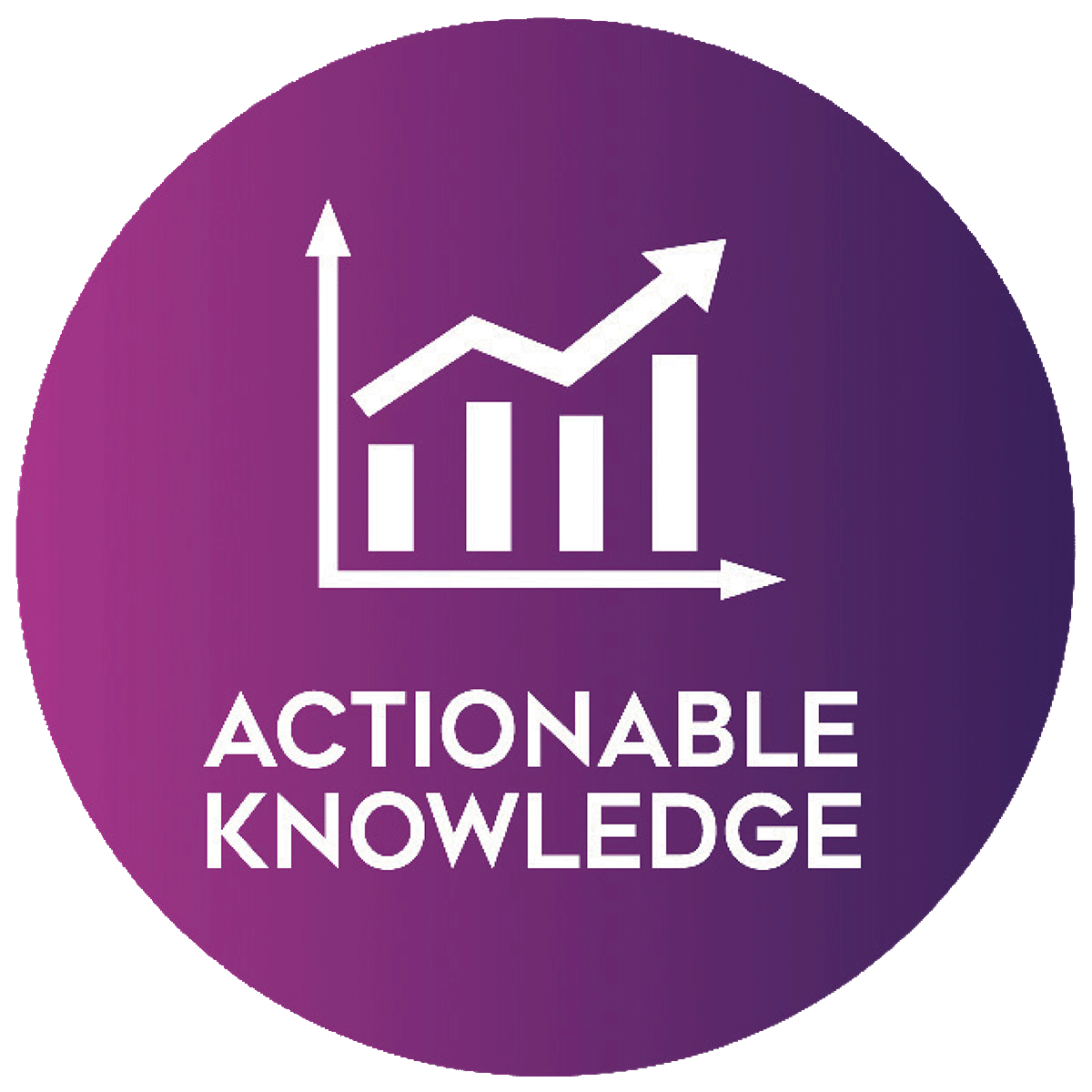
Guideline optimization, as well as a focus on overall clinical guidance, were a significant part of efforts to generate and deliver actionable knowledge. The ACC and AHA launched an in-depth review and redesign process to optimize all aspects of clinical guideline development and implementation, ranging from strategy to content and operations.
The results of this undertaking were 30 key recommendations to optimize the process, define external and internal metrics of success, and achieve the simultaneous goals of reducing guideline production timelines by 50% and improving accessibility and applicability. The 10 ACC/AHA clinical guidelines developed between 2019 and 2023 have benefitted from elements of these recommendations.
Expert Consensus Decision Pathways, Heart House Roundtables, mobile apps and other clinical quality solutions have also emerged on the scene, helping to guide clinical decision-making on new and emerging issues like amyloidosis, nonstatin therapies for LDL-C lowering, maternal health and more. This guidance was particularly impactful during the COVID-19 pandemic, providing a trusted and centralized place for clinicians around the world to find the latest education, best practices and research updates.
In addition, valuable online and digital initiatives like the NCD Academy, the ACC Anywhere video library, the Collaborative Maintenance Pathway (CMP), and an increasing number of hybrid and virtual-only courses have also benefitted from ACC's broader digital transformation efforts and contributed to ACC's "Actionable Knowledge" progress.
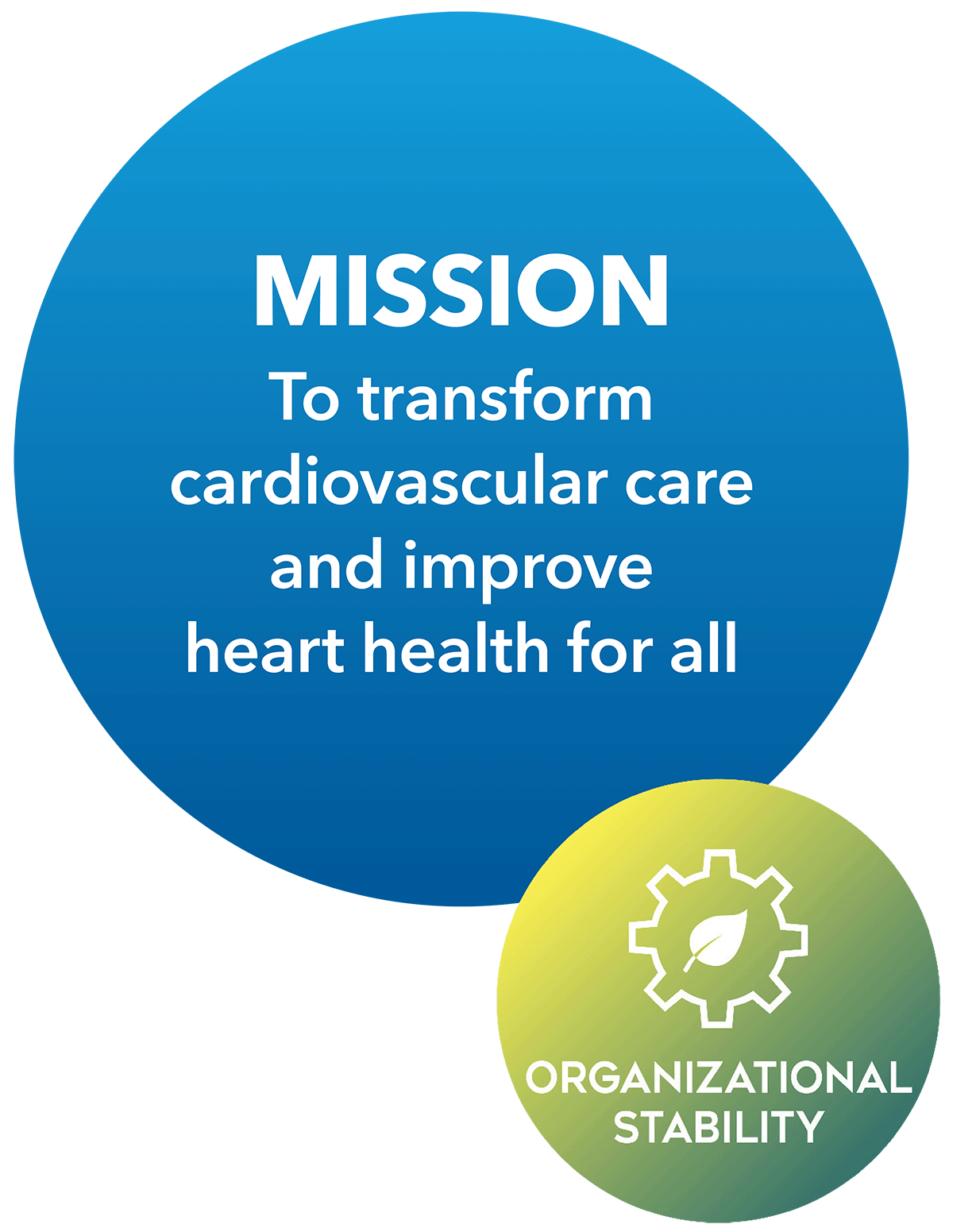
Last, but certainly not least, ensuring organizational growth and sustainability has been a constant part of the College's strategic planning work. In the last five years, digital transformation has been among the biggest efforts, given the many different ways that advances in technology are continuously changing how clinicians engage with the College as members and customers.
As such, the College has spent the last several years tackling internal process and system improvements that will drive more efficient operations and enhanced member service, and transforming the curation, management and delivery of clinical tools and guidance to the ACC members around the world.
A focus on building a culture of philanthropy has also taken hold, building on the infrastructure developed by the 2020 Campaign for the Future. The generous contributions of so many members in support of Mission-driven initiatives is paving the way for long-term sustainability and culture-building necessary to guide the College for another 75 years and beyond.
The Next Chapter
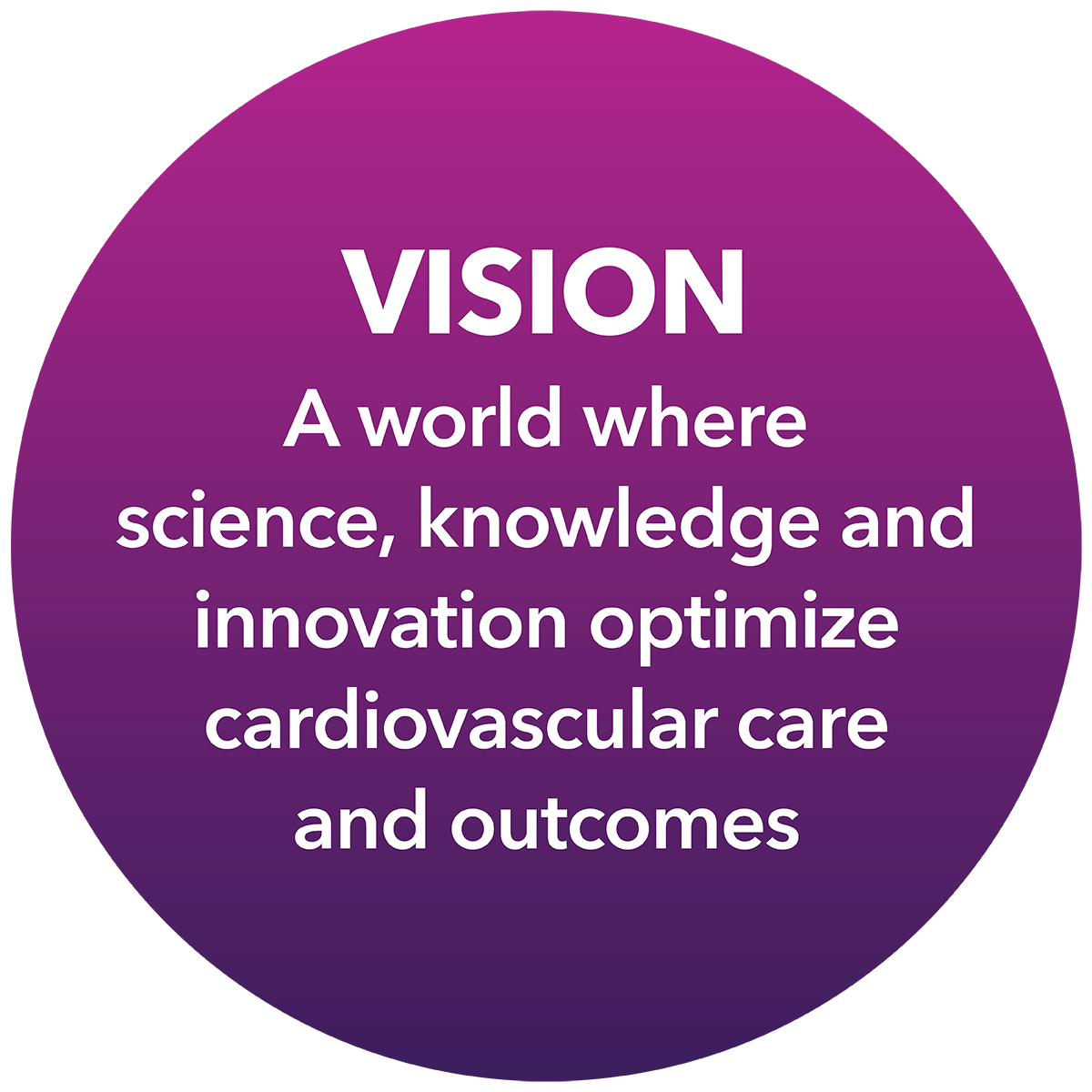
It's fitting that the College is launching its next five-year Strategic Plan at the same time it's celebrating its 75th Anniversary milestone. The next chapter in the College's history will be centered around the College's existing Strategic Pillars, grounded by a shared Mission and Vision and guided by core values that underscore teamwork, collaboration, professionalism, excellence, equity and a commitment to patient-centered care.
In addition to sustaining the long-standing, core work on clinical guideline and guidance development, digital transformation, innovation, diversity and inclusion, global education and more, the next Strategic Plan will focus on the following five major initiatives to:
- Address Health Equity in Cardiovascular Care
- Assess ACC's Educational Portfolio
- Build a Framework For Continuous Cardiovascular Clinical Competence
- Transform Care Delivery in New Areas
- Enable Guidance at the Point of Care
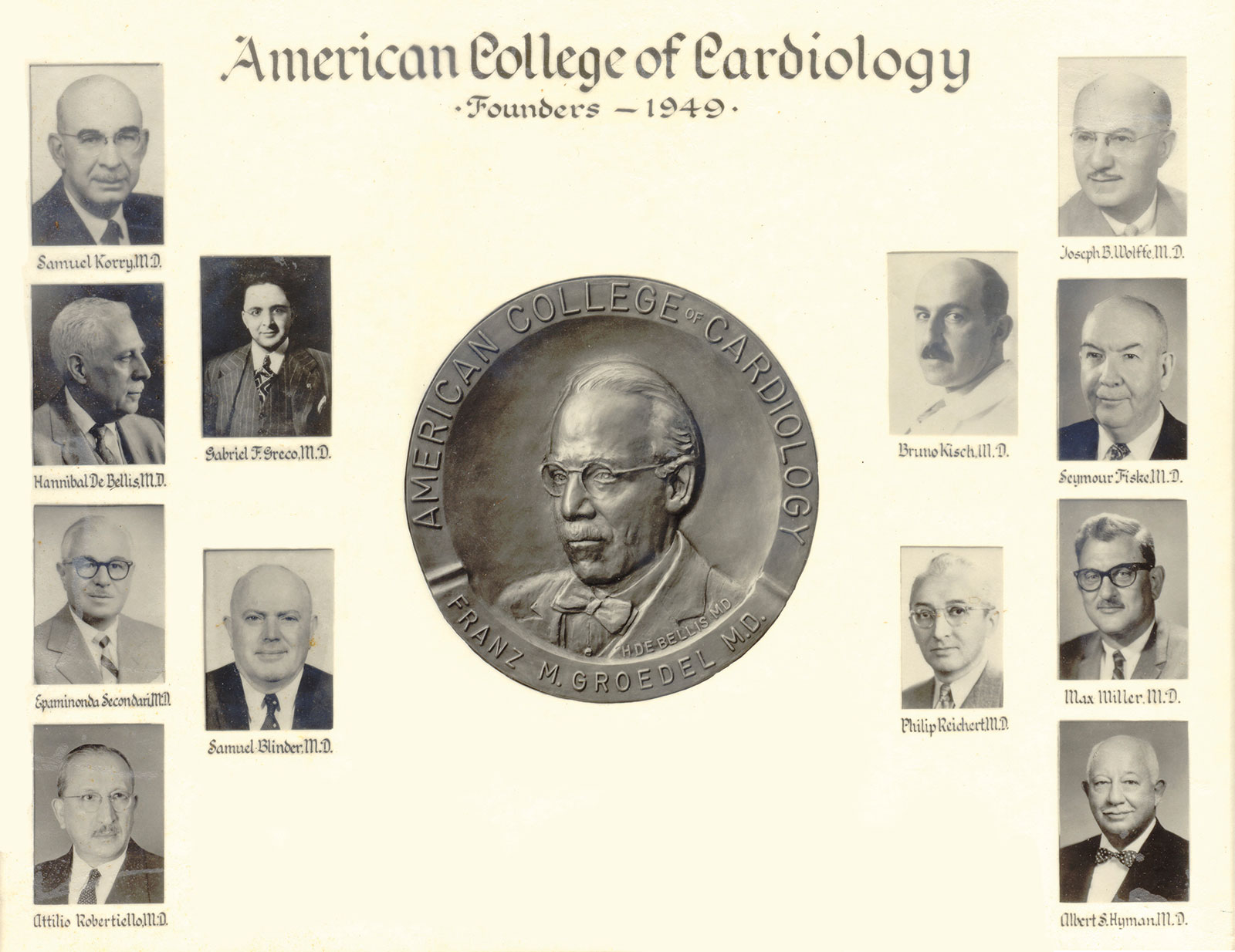
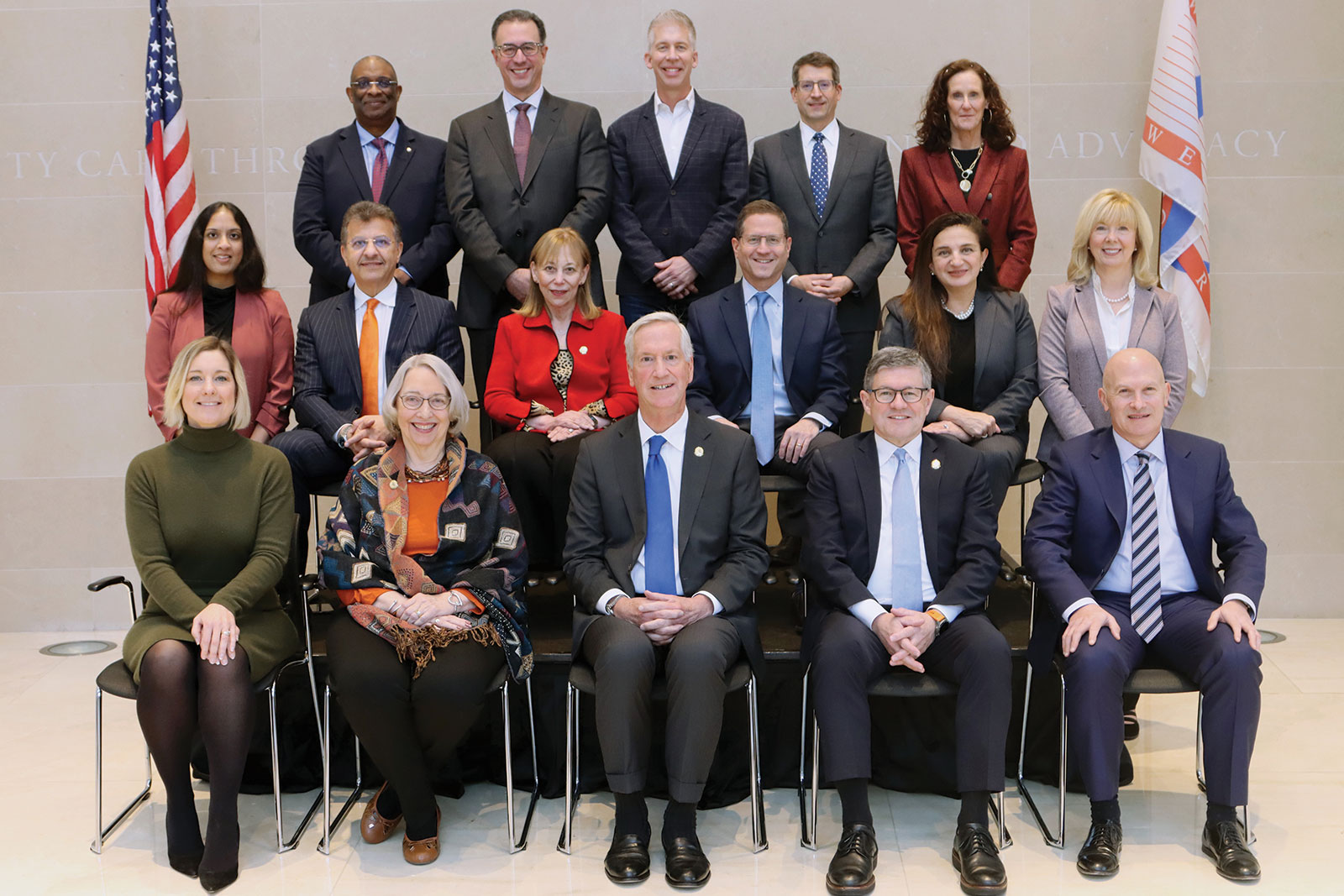 ACC's Current Board of Trustees
ACC's Current Board of Trustees
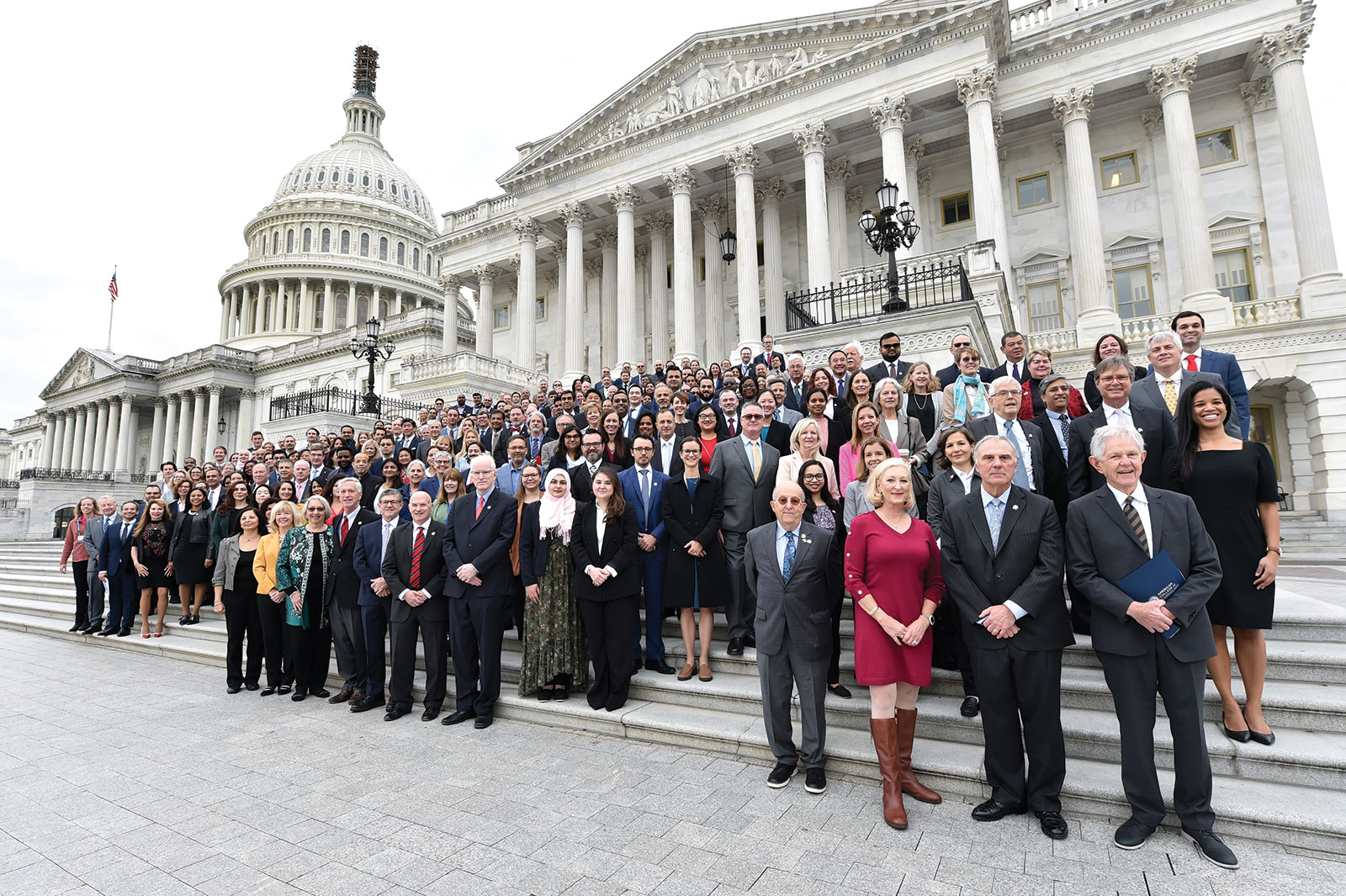
When it comes to Health Equity, member leaders, staff and others are already hard at work to develop actionable cardiovascular health care data, science and tools to address health disparities, increase awareness of cardiovascular-related health equity issues through advocacy and policy development, as well as embed health equity into the College's education and training efforts.
The Educational Assessment initiative will focus on developing personalized educational experiences with trusted content that is relevant, high-quality, competency-driven, and differentiated in the marketplace. The third initiative will focus on building a pathway for clinicians to achieve and maintain Continuous CV Clinical Competence in all chosen established disciplines of cardiovascular medicine, a shift in the current continuous testing paradigm.
Importantly, the College is also committed to building a new, independent Board of Cardiovascular Medicine separate from internal medicine working in collaboration with the AHA, Heart Rhythm Society, Heart Failure Society of America and the Society of Cardiovascular Angiography and Interventions.
Care transformation and enabling guidance at the point of care are the two other major initiatives over the next five years. Both efforts will involve collaboration with partner cardiovascular societies and innovation and industry partners. Among the goals: to build a clinical data, operational data and accreditation infrastructure for high-quality provision of previously inpatient cardiovascular services, as well as define best practices for various cardiovascular team structures, processes and reimbursement.
Speaking at the New York Cardiovascular Symposium in December 2023, ACC President B. Hadley Wilson noted: "This is a lot, but we're up for the challenge and our continued collaboration and partnership will be key as we move from vision to reality. Together, we will realize our full potential and ensure a legacy that lasts for another 75 years and beyond."
Leave Your Mark on the Future
Over the next year, gifts to the ACC Annual Fund will enable the College to build on and sustain the legacy created by leaders, mentors, teachers, scientists and clinicians over the last 75 years and help us invest in creating a bright future for the next generation. Contributions of any size will go towards:- Empowering future leaders and the next generation of cardiovascular innovators through scholarships, mentorship, and leadership development programs.
- Improving global care outcomes through the distribution of educational materials to clinicians in underserved communities worldwide and through support of quality improvement programs that save lives.
- Advancing health equity to achieve a culture of equitable cardiovascular care and heart health for all through education, advocacy and science.
Learn more and leave your own mark on the College at ACC.org/AnnualFund.
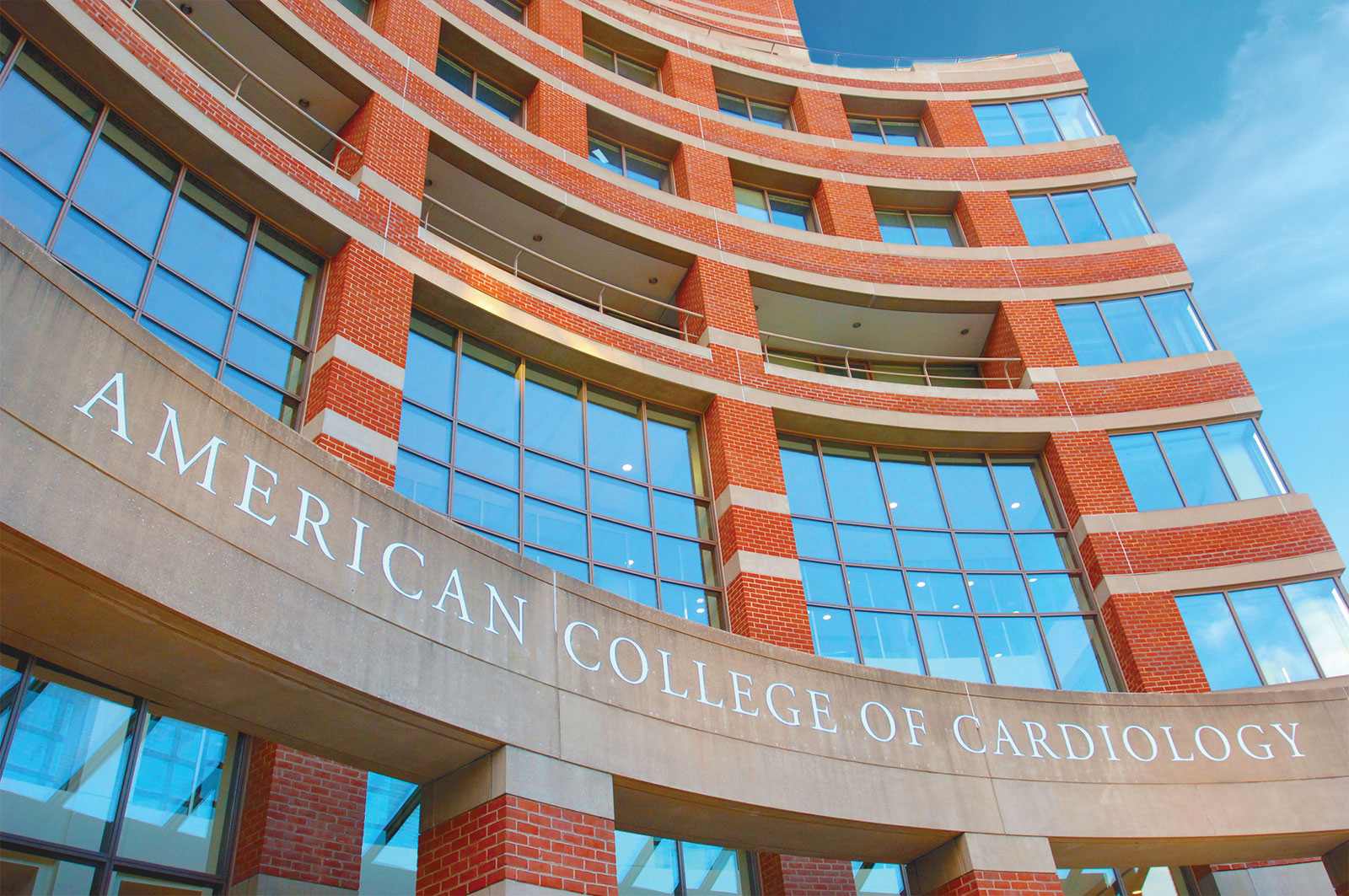
A Time For Celebration
Stay Tuned!
Looking for more on the ACC's Strategic Plan? Cardiology will be diving deeper into all five of the major initiatives over the coming months.
The ACC exists because of its members! Join us at ACC.24 in Atlanta, GA, from April 6 to 8 to help us celebrate our 75th Anniversary and all that we have accomplished together.
Mark your calendar for the Opening Showcase Session to kick off the meeting and don't miss the annual Convocation ceremony on April 8, followed by the New Fellows and Associates Reception and Anniversary Celebration. Other activities will be posted on the ACC.24 site as details are finalized.
Click here to access the program planner and to register.
Keywords: Cardiology Magazine, ACC Publications, ACC History, ACC International, Quality Improvement, Heart Diseases, Cardiology, ACC75Anniversary

